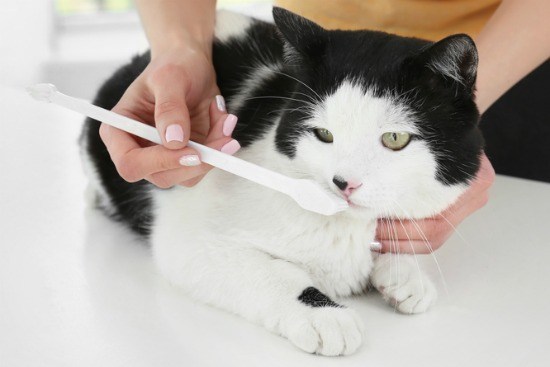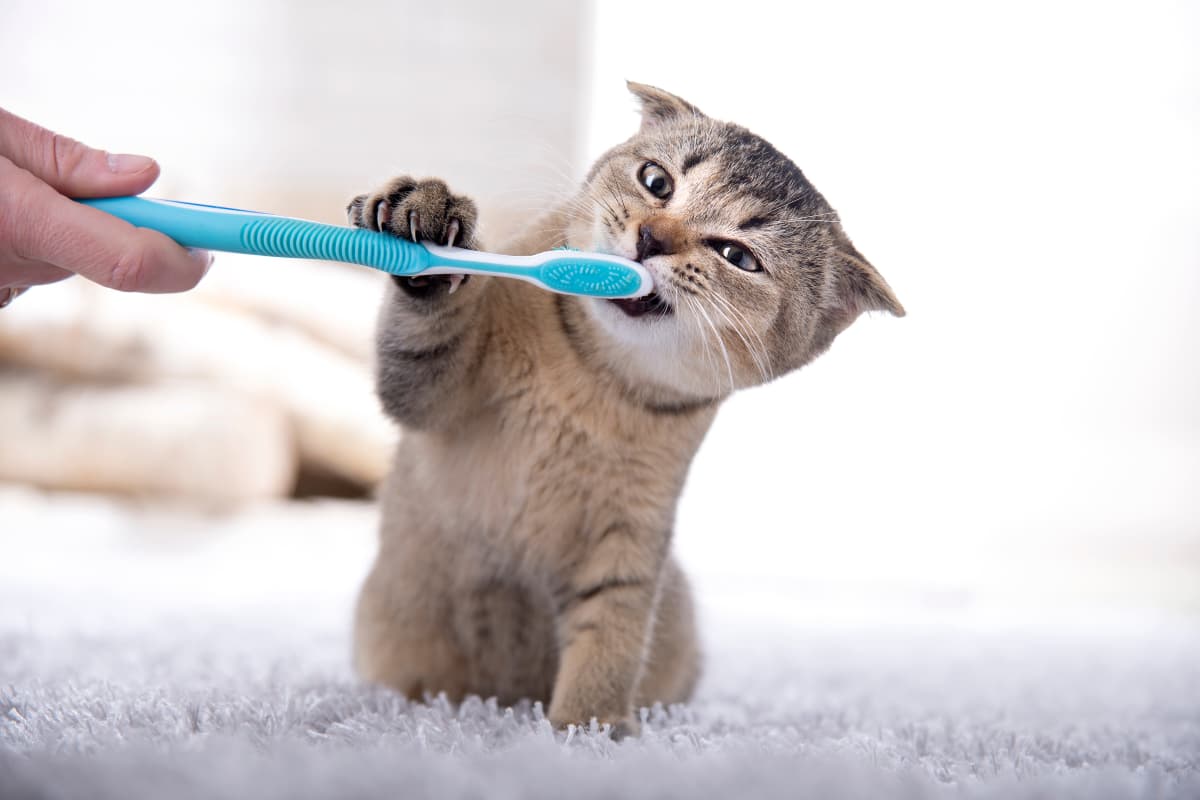As we know, cats (even our house cats) are known to consume rodents, including their fur and bones. This type of abrasive action affects their dental health more than we could ever know. If we neglect their dental care, they become more prone to dental disease. Dental disease affects more than the majority of cats over the age of four.
Read on as we learn more about cats’ dental care and discover ways to keep your cat’s teeth healthy.
Taking a Look inside the Cat’s Mouth
Cats are carnivores. Their digestive system has been designed to maximize protein digestion and carbohydrate absorption. This necessitates the use of teeth that differ from those used by humans for grinding. Furthermore, they lack the bacteria-fighting enzymes found in our mouths.
Food can become trapped between the teeth and the gum line due to the unique shape of cat teeth. Plaque is a gooey substance formed when saliva, food, and bacteria come together. Gingivitis is a bacterial infection that causes gumline redness, swelling, and pain.
Plaque hardens into tartar if not removed by a dentist. Tartar accumulates along the gum line and beneath the tooth roots. Periodontal disease is a painful condition that necessitates veterinary care.

Periodontal disease can cause Feline Tooth Resorption. This is the most common reason for tooth loss in cats. It affects approximately 75% of cats over the age of five. The tooth's dentin erodes, necessitating extraction. Your cat is in pain, despite the fact that the cause is unknown.
Pathogenic bacteria produced in your cat's mouth can enter the bloodstream and wreak havoc on the heart, kidneys, and liver over time.
The Symptoms
Cats do not show signs of pain until it is severe. Dental disease in cats may manifest in visible discoloration or tartar, bleeding or swollen gums, consumption issues, and sudden weight loss, among others.
The Price to Pay
The cost of feline dentistry is determined by your location, your cat's age, and health, and the extent of medical treatment required. In most cases, dental care is expensive.
A cat extraction can cost anywhere from $300 to $1300. Examples of tests and medications include bloodwork and x-rays. The most frequently cited reason for higher costs associated with more invasive dental procedures is extractions.

Cat health insurance may help to cover some of these expenses. Only a few pet insurance companies provide comprehensive dental care for cats.
Preventing Dental Disease
The most effective method of preventing feline dental disease is regular dental care. Because the majority of cats over the age of four have some form of dental disease, it is best to start treatment as soon as possible. It can help your cat live a longer and happier life.
The following are the three most effective steps toward dental health:
- Diet and Nutrition: Diet influences dental health. Well-balanced, nutritious cat food will protect your cat's overall health, allowing it to fight disease and heal itself.
- Regular Dental Examination: For cats over the age of six, veterinarians recommend annual or twice-yearly dental examinations. During the initial dental exam, your veterinarian will examine your cat’s mouth. This allows them to see the teeth and jaw. They will also look for teeth fractures, plaque on the teeth, periodontal disease, tartar buildup, abscesses or resorption signs, and bumps or lesions that look like tumors. During the checkup, a procedure like teeth cleaning and scaling may also be conducted. This removes plaque and tartar above and below the gum line and is then polished to remove plaque adhesion. Finally, a blunt dental probe will be used to determine whether or not there is periodontal disease or whether or not teeth are eroding.
- Feline Oral Surgery: To remove tumors, excise infected gums, or extract teeth due to damage, resorption, or impacted teeth, a veterinary dental specialist may be consulted.
Conclusion
Sometimes, it all boils down to the best home dental practices. As such, a balanced diet, regular brushing, dental supplements or chews, and regular brushing all contribute to an at-home dental care routine.
While many cats dislike having their mouths touched, they can be coaxed gradually with patience and treats. So, start them early to prevent issues in the long run!
Are you looking for a local pet store? EarthWise Pet Fremont is a family-run pet center. From pet supplies and all-natural pet foods, we have it all! Contact us today for advice, quick tips, and pet-friendly products!

